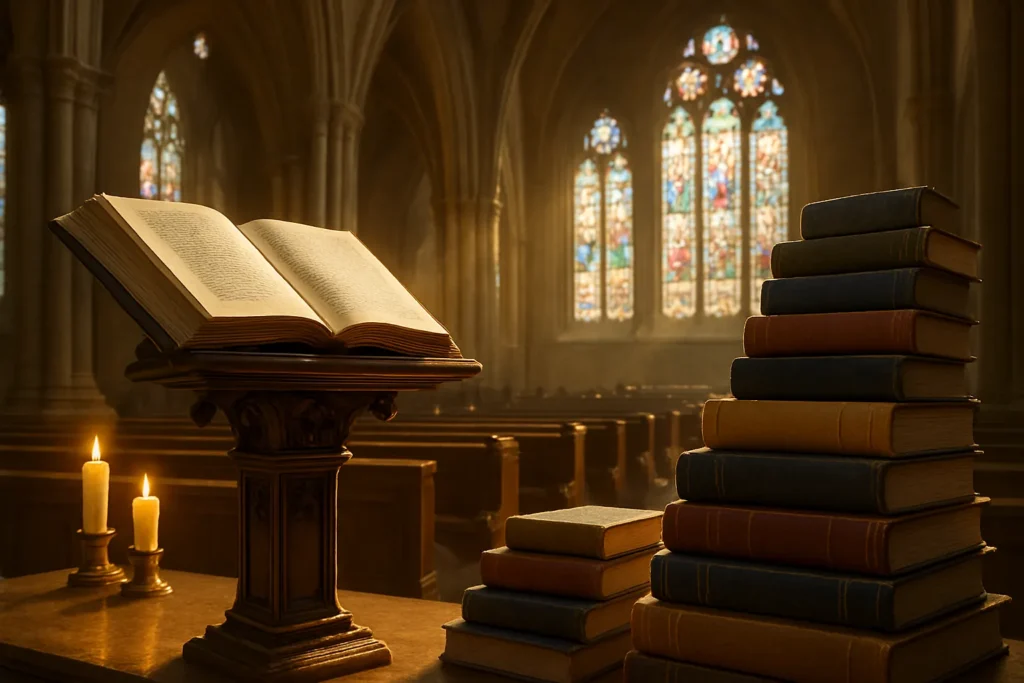Breaking from Tradition: A Pontiff for Pluralism
Pope Leo XIV stood before a sea of journalists in the Vatican’s Paul VI hall, the morning’s quiet punctuated by laughter as the newly minted pontiff opened with an uncommonly lighthearted English greeting: “Good morning. Thank you for this wonderful reception. They say that when they clap at the beginning, it doesn’t matter much. If you’re still awake at the end and still want to applaud, thank you very much.” The first American to lead the Catholic Church may have charmed reporters with humor, but his message that day carried resonant seriousness—and a progressive vision sorely missing from global discourse.
Pope Leo’s appeal—the release of journalists jailed for “seeking and reporting the truth”—landed not as empty rhetoric but as a call to conscience for leaders around the world. With more than 550 journalists detained in 2024, according to Reporters Without Borders, the urgency is clear: the fight for press freedom is not theoretical, but a matter of individual lives, democratic health, and societal resilience.
His address swiftly pivoted beyond pleasantries to tackle the crisis facing journalism. “Free speech and a free press,” Pope Leo declared, “are precious gifts,” before calling governments and power brokers to account for their roles in suppressing truth-tellers and fostering divisiveness. His demand that the global community “reject the paradigm of war”—that words not be used to divide but to heal—felt like both a rebuke and an invitation to do better.
Beyond Words: Press Freedom in Peril
Standing ovations aside, Pope Leo’s message stripped away the pretense that journalism’s crisis is mere collateral in some larger culture war. If reporters are behind bars for speaking truth and bearing witness to brutality, what does that say about the societies that imprison them?
The pope’s empathy was palpable as he praised the courage of journalists working in war zones, lauding their willingness to defend “dignity, justice, and the right to be informed” even at the risk of their lives. A closer look reveals the ripple effects: when journalists disappear, so do the hopes for transparency and justice in repressive states. From Myanmar and Russia to Egypt and Turkey, the chilling impact on civil society is undeniable. According to the Committee to Protect Journalists, 2023 marked the highest number of imprisoned reporters in the past decade, a trend growing under authoritarian regimes and populist democracies alike.
The message resonates far beyond the Vatican. “A free press is the guardian of democratic values,” argues Harvard’s Professor Emily Sanchez, pointing out that when leaders silence critics, “They aren’t protecting the public—they’re protecting themselves from accountability.”
“If reporters are behind bars for speaking truth and bearing witness to brutality, what does that say about the societies that imprison them?”
Pope Leo’s words also acknowledged the increasingly global reach of oppression. It’s not only in obvious places—Western democracies have steadily chipped away at press rights with lawsuits, surveillance, and political scapegoating. Instead of welcoming scrutiny, conservative movements and their enablers in government have too often painted the press as a treacherous fifth column, rather than the people’s watchdog.
Solidarity and Responsibility: The Dual Mandate for Modern Media
Solidarity with embattled journalists marks only half the equation. The second imperative, underscored by Pope Leo, is the moral responsibility of the media themselves. The pontiff cautioned journalists to “avoid aggressive reporting,” warning against the seductive slide into partisanship and fomenting “prejudice, resentment, fanaticism and even hatred.” These are not new admonitions—historical echoes can be heard from past reformers, from Thomas Jefferson’s cautionary notes about newspapers to Václav Havel’s insistence that truth is the first casualty of authoritarianism. But in an era of algorithm-driven outrage, they feel particularly urgent.
The pope’s call to treat reporting as a form of “love,” not warfare, asks journalists and their audiences to revisit the ethical foundations of their craft. According to a 2023 Pew Research Center survey, more than half of Americans now routinely distrust major news outlets, in part due to relentless attacks from partisan leaders—often on the hard right. When media ecosystems fragment and echo partisan talking points, it’s democracy itself that suffers.
This balance—unyielding in pursuit of the truth, yet measured and humane in its delivery—is more than a papal ideal. It’s a path to restoring civic trust, especially in polarized societies where mistrust can be weaponized. Journalist and Nobel laureate Maria Ressa put it simply in her 2021 Peace Prize speech: “Without facts, you can’t have truth. Without truth, you can’t have trust. Without trust, we have no shared reality, and democracy as we know it is dead.”
Beyond that, Pope Leo’s warnings about artificial intelligence—urging “responsibility and discernment” in its deployment—highlight a mounting challenge: how do we balance innovation and integrity in a media landscape that moves at the speed of code? Thoughtful regulation and human editorial judgment, not profit-driven algorithms, must win out if we are to defend both liberty and truth.
The Pontiff’s remarks concluded not with fire and brimstone, but with warmth. After his speech, he mingled, shook hands, signed autographs, and posed for selfies—projecting a model of approachability and humility. This, too, was a lesson in leadership: empathy married to moral clarity can help unite inaction-fatigued societies.
Pope Leo’s Global Role: From Vatican to Ukraine
After the applause faded, an important moment unfolded on the diplomatic stage. Ukrainian President Volodymyr Zelensky personally invited Pope Leo to visit Ukraine, signaling hope for peace and demonstrating how papal advocacy can have real-world resonance for those caught between war and propaganda. Zelensky’s invitation, as reported in global media, reaffirmed that courage in words can encourage courageous action on the ground.
By urging governments to protect the press and refrain from exploiting public fears, Pope Leo XIV echoed the best of the Church’s prophetic tradition—and challenged power structures beyond the faithful. The call is now for journalists, policymakers, and everyday citizens to follow suit. History will judge not just the words issued in marble halls, but the action taken in response to them.

